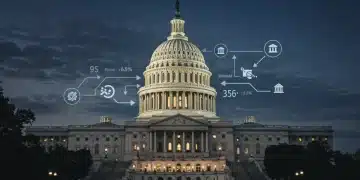Page gun control debate: Understanding the core issues

The gun control debate centers around the balance between individual rights and public safety, with differing opinions shaped by historical context, public sentiment, and varying laws in other countries.
The page gun control debate continues to shape discussions around safety and rights in the U.S. As opinions clash, it’s crucial to understand the various viewpoints and the implications behind them.
Historical context of gun control
The historical context of gun control is essential to understanding the current debates surrounding it. Gun laws have evolved significantly in the United States due to various cultural, social, and political factors. Understanding these developments can provide insight into why people hold strong opinions on both sides of the argument.
Early Legislation
Gun control in the United States has origins that date back to colonial times. Initially, laws focused on regulating the ownership of firearms among certain populations. These laws aimed to promote safety and maintain social order within communities. In the early days, gun ownership was common, seen as a right and a necessity.
20th Century Changes
As the nation progressed into the 20th century, the gun control debate intensified. Events such as the two World Wars and the Great Depression led to an increase in violence and crime, prompting lawmakers to take action. In 1934, the National Firearms Act was enacted to regulate automatic weapons and other firearms.
- This act marked a significant shift towards federal regulation of firearms.
- New regulations aimed to curb organized crime and violence.
- Subsequent laws introduced background checks and waiting periods for gun purchasers.
Further developments, including the Gun Control Act of 1968, restricted the sale of firearms to specific groups. These included convicted felons, mentally ill individuals, and minors, highlighting a growing concern for public safety.
Contemporary Context
The late 20th and early 21st centuries witnessed escalating gun violence, resulting in more public outcry for strict regulations. High-profile incidents, such as mass shootings, have reignited discussions on the need for gun control. Advocacy groups have emerged, pushing for both gun rights and stricter laws. The political landscape has become increasingly polarized, with one side emphasizing the Second Amendment rights and the other advocating for stronger legislative measures.
Understanding the historical context provides a framework for examining current laws and proposed reforms. It helps to clarify why certain cultural and legal perspectives on firearms persist today. As debates continue, reflecting on the past is vital to shaping the future of gun control in America.
Current legislation and its impact
Understanding current legislation around gun control is crucial for grasping its impact on society. Recent laws aim to address rising gun violence while balancing individual rights. Each state has its unique set of regulations that reflect local views on firearm ownership.
Federal Laws
On the federal level, laws like the Brady Handgun Violence Prevention Act have played significant roles. This law mandates background checks for gun purchasers and has affected how transactions occur across the nation. Additionally, the Violent Crime Control and Law Enforcement Act of 1994, although expired, shaped discussions on assault weapons and their restrictions.
State Regulations
States have the authority to implement more stringent laws. For example, California has enacted laws that limit magazine capacities and requires comprehensive background checks for all gun sales. New York followed suit with the SAFE Act, which includes provisions for mental health checks and mandatory reporting.
- Different states can set their own regulations, leading to inconsistencies.
- Some states allow open carry, while others require concealed carry permits.
- These laws reflect the balance between public safety and individual rights.
As legislation evolves, the impact on communities becomes increasingly clear. Areas with stricter gun laws often report lower rates of gun violence compared to states with less regulation. However, debates continue about whether these laws are truly effective or if they infringe upon the constitutional rights of individuals.
In addition, public reactions to recent mass shootings have prompted lawmakers to revisit existing legislation. Many citizens advocate for stronger measures, while others argue that such actions can lead to unnecessary restrictions. As the gun control discussion develops, the effectiveness of current legislation remains a topic of intense scrutiny.
Key arguments for and against gun control

The discussion around gun control often involves passionate arguments from both sides. Understanding these key arguments can help clarify the complexities of this ongoing debate. Proponents and opponents each present valid points that reflect their values and concerns.
Arguments For Gun Control
Supporters of gun control emphasize the need for safety and responsible ownership. They argue that stricter laws can reduce gun violence and prevent tragic events. Here are some key points:
- Stricter background checks can prevent firearms from falling into the wrong hands.
- Regulating certain types of firearms, like assault weapons, could significantly lower mass shooting incidents.
- Countries with more stringent gun laws typically report lower rates of gun-related deaths.
Advocates also stress the importance of protecting children and vulnerable populations from gun violence. They believe that fewer guns lead to a safer society.
Arguments Against Gun Control
On the other hand, opponents argue that gun control measures often infringe upon individual rights guaranteed by the Second Amendment. They argue for personal freedoms and self-defense as crucial reasons against stricter regulations. Important points include:
- Law-abiding citizens should not be penalized for the actions of criminals.
- Gun ownership acts as a deterrent against crime and violence.
- Many believe that an armed citizenry can help protect against threats, including government tyranny.
Furthermore, opponents of gun control argue that effective enforcement of existing laws is more critical than creating new ones. They believe that focusing on mental health issues and criminal behavior could be more effective in reducing violence.
As both sides passionately defend their positions, the debate continues fiercely in legislative and public spheres. The impact of these differing views shapes discussions about the future of gun control in America.
The role of public opinion in gun control
The role of public opinion in gun control is vital for shaping laws and policies. As society’s views evolve, they directly influence decisions made by lawmakers. Understanding how public sentiment affects gun control can illuminate why certain regulations are passed or stalled.
Influence on Legislation
When public support for gun control rises, legislators often respond with new measures. Surveys and polls frequently suggest that a majority of citizens favor stricter firearm regulations after high-profile incidents of gun violence. Public outcry can lead to legislative action, showing how powerful collective opinion can be.
Changing Perspectives
Over the years, attitudes toward gun control have shifted. Events like mass shootings influence public perceptions. For instance, after a tragic event, many people express a desire for more robust safety measures. This shift leads to increased discussions surrounding laws and potential changes.
- Pew Research shows significant support for universal background checks among voters.
- Public opinion fluctuates with media coverage and advocacy campaigns.
- Grassroots movements often arise to challenge or support legislation.
Notably, organizations that promote either side of the gun control debate, such as the NRA or Moms Demand Action, can significantly sway public opinion through campaigns and lobbying efforts. These groups often mobilize large numbers of supporters to advocate for their causes, demonstrating the impact of organized public sentiment.
The Feedback Loop
The relationship between public opinion and policy is cyclical. As laws change, public attitudes can also shift. For example, if new regulations are perceived as effective in reducing violence, public support may increase. Conversely, if they are seen as ineffective or overly restrictive, public backlash may occur.
Ultimately, the role of public opinion in gun control shapes the future direction of legislation. Engaging with diverse opinions and fostering informed discussions is crucial. Understanding these dynamics provides insight into how societies navigate the complex issues surrounding firearm regulations.
Comparative analysis with other countries’ laws
A comparative analysis of gun laws in different countries reveals significant differences in how nations approach firearm regulation. Understanding these variations helps contextualize the ongoing debates over gun control in the United States.
Countries with Strict Gun Control
Many countries have enacted stringent gun control measures, resulting in low rates of gun violence. For instance, in Japan, the process of obtaining a firearm is rigorous. Citizens must undergo thorough training and pass extensive background checks. As a result, gun-related deaths remain exceptionally low.
- Japan has fewer than 10 gun-related deaths per year.
- Obtaining a gun requires psychological evaluations and a valid reason.
- The process can take several months, ensuring thorough vetting.
Similarly, countries like Australia experienced significant reforms after mass shootings in the 1990s. The government implemented a gun buyback program, leading to a sharp decline in firearm ownership and violence rates.
Countries with More Lenient Gun Laws
In contrast, countries like the United States and Switzerland maintain more permissive gun laws. In the U.S., the Second Amendment protects the right to bear arms, resulting in millions of privately owned firearms. While states have varying laws, the general approach allows greater access to guns.
- The U.S. has one of the highest rates of gun ownership in the world.
- Many states have few restrictions on purchasing firearms.
- The debate over gun rights often centers around personal freedom versus public safety.
Switzerland presents an interesting case where gun ownership is high, yet violence rates are low. Citizens are encouraged to keep firearms as part of national defense, yet there are strict laws regarding storage and usage.
Comparing these different approaches reveals the complexity of the gun control debate. Each country’s unique cultural, historical, and social contexts shape its laws. As discussions continue, examining global practices will be crucial for informing effective policies.
In conclusion, the gun control debate is complex and multifaceted. Various factors like public opinion, historical context, and laws in other countries all contribute to the ongoing discussions. By understanding these different dimensions, individuals can engage more thoughtfully in the conversation around gun rights and regulations. Striking a balance between safety and individual freedoms remains a key challenge. As society continues to grapple with this issue, it is essential to remain informed and open to different perspectives.
FAQ – Frequently Asked Questions about Gun Control Debate
What are the main factors influencing gun control laws?
Factors include public opinion, historical events, cultural attitudes, and the influence of advocacy groups.
How does public opinion shape gun control legislation?
Public sentiment can lead to legislative changes, especially after incidents of gun violence, as lawmakers respond to voter concerns.
What countries have strict gun control laws?
Countries like Japan and Australia have implemented strict gun control measures that significantly reduce gun violence.
Why is the balance between safety and individual rights important?
Striking this balance is essential to ensure that regulations protect public safety while also respecting citizens’ constitutional rights.





